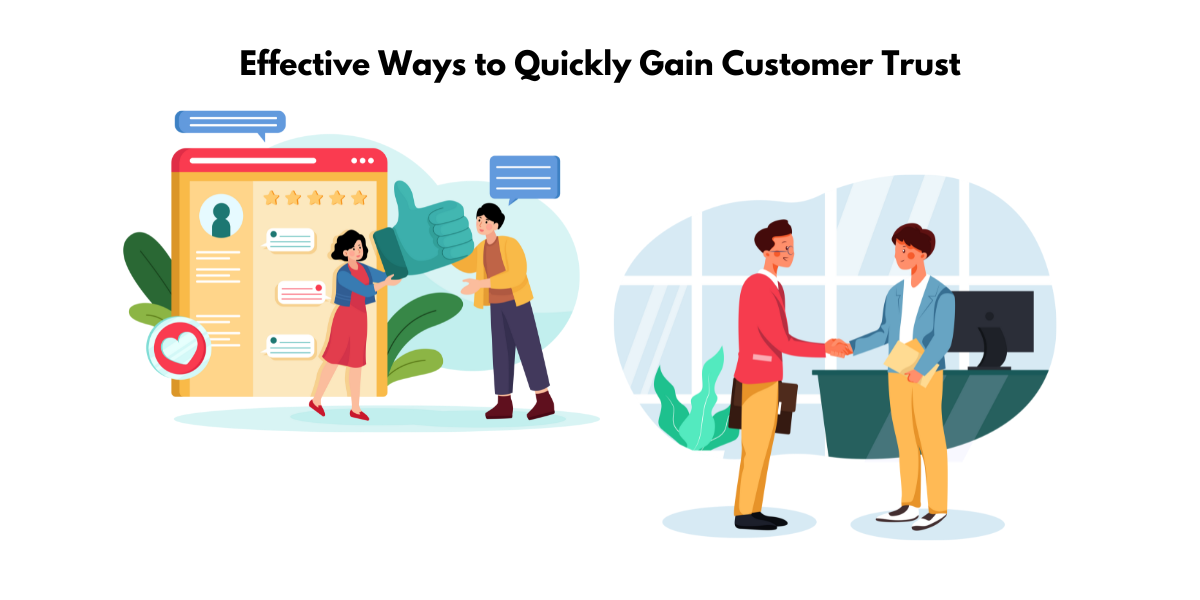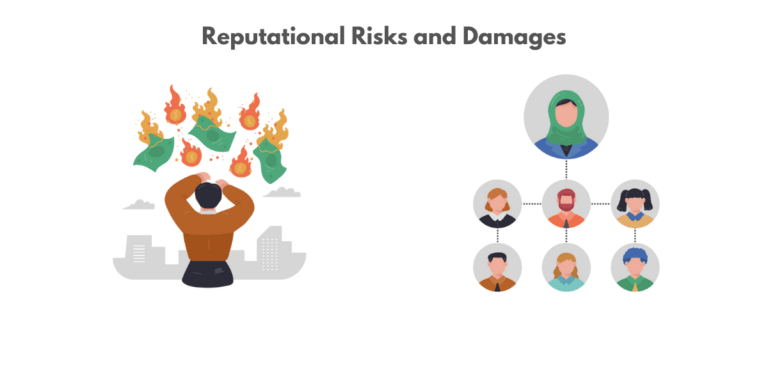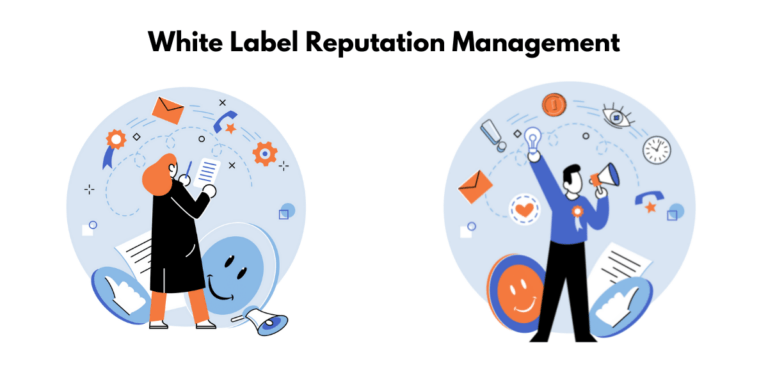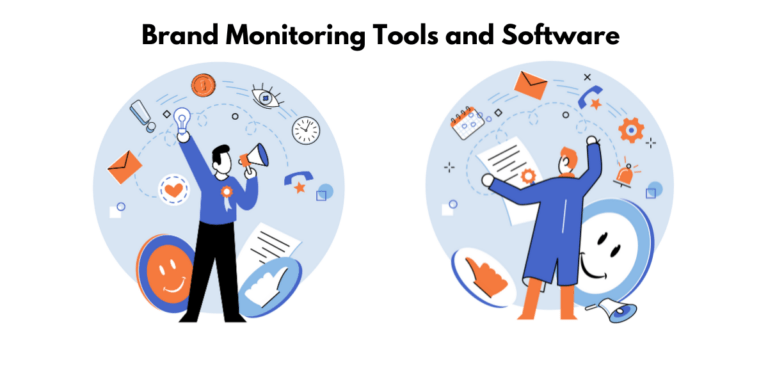Understanding the Basics of Customer Trust
Unveiling the Power of Trust in Customer Relations
Trust acts as the bedrock of all successful customer relationships. It’s more than just a feeling; it’s a critical, strategic element that propels businesses forward. When customers trust a company, they form an emotional bond that surpasses mere transactions. They believe in the authenticity and reliability of the company’s products or services, strongly influencing their purchasing decisions. Trust is not built overnight but through a series of consistent actions that assure customers they are valued and understood. Imagine a bridge where every plank represents an act of trust—this bridge connects you to your customers, and without it, sustaining a long-term relationship is nearly impossible.
Fast-Tracking Trust-Building in Business: Why It Matters
In today’s fast-paced market, the ability to garner trust swiftly can set you apart from the competition. Trust-building is not just a value-add; it’s a strategic necessity. Customers have endless choices, and they gravitate towards businesses they can rely on without second-guessing. The time invested in establishing trust is returned in customer loyalty, increased sales, and referrals. PwC’s 2023 Trust Survey underscored that building trust is not a passive process but an active effort by organizations that significantly enhances their profitability. Fast-track trust-building by showing customers you understand their needs, actively listening to their concerns, and consistently aligning your actions with their expectations. As trust rises, so does the ease of doing business and the speed at which success is achieved.

Prioritize Authentic Transparency
The Role of Honesty in Winning Customers’ Hearts
Honesty is truly the best policy when it comes to winning customers’ hearts. When you’re honest with them, you’re not just selling a product or service; you’re offering a piece of your integrity. Customers appreciate when companies are upfront about what they can and cannot provide. This approach not only helps to set realistic expectations but also fosters a culture of trust over time. Honest interactions encourage customers to return, knowing that they are engaging with a business that values integrity over quick sales. Don’t shy away from admitting mistakes; this level of candor can strengthen the customer-business bond like few other things can.
Transparency as a Shortcut to Dependability
Transparency is indeed a powerful shortcut to earning the badge of dependability. When customers sense that you’re transparent, it removes the guesswork and the inherent skepticism that comes with online shopping. They trust you because you’ve shown them the inner workings of your business processes, been clear about pricing, and provided thorough information about products or services. This openness is particularly instrumental when addressing issues such as product recalls, where forthrightness about the situation can actually enhance trust. By pulling back the curtain, you’re telling your customers, “We have nothing to hide,” which can quickly translate into, “You can depend on us.”

Deliver Exceptional Customer Service Consistently
Becoming Synonymous with Quality Service Delivery
Quality service delivery is your ticket to becoming an icon of trust in the eyes of your customers. There’s something reassuring about a business that doesn’t just talk the talk but also walks the walk. When you consistently meet or exceed expectations with your service, customers begin to associate your brand with dependability. Your goal is to ensure that every touchpoint—from the first customer inquiry to post-purchase support—is handled with the utmost care and quality. This means investing in well-trained customer service teams, efficient processes, and feedback mechanisms that guarantee excellence. Remember, when customers experience quality service time and time again, trust is not just an outcome; it becomes your brand’s identity.
Consistent Experiences That Foster Reliability and Trust
Consistency in the customer experience is like the steady beat of a drum that assures customers they’re in good hands. From the moment they first interact with your company to every subsequent engagement, consistency fosters a sense of familiarity and reliability. This means ensuring that every aspect of your business, from product quality to customer service, delivers without fail. It’s about aligning with your brand promise in every action you take. When customers know what to expect and those expectations are regularly met, trust naturally follows. Consider implementing standard operating procedures and regular training for your team to maintain this level of consistency.

Engage in Active Communication and Feedback Loops
The Impact of Open Dialogue on Consumer Confidence
Open dialogue is a game-changer when it comes to boosting consumer confidence. By engaging in honest conversations and actively listening, you demonstrate that you value customers’ perspectives and are committed to serving their needs. Whether it’s through customer service calls, social media interactions, or focus groups, each open line of communication offers insights into what your customers truly desire. Moreover, an open dialogue helps to preemptively address any concerns and mitigates issues before they escalate. As customers watch their input being taken seriously and affecting change, their confidence in your brand solidifies, nurturing a robust and trusting relationship.
Turning Feedback into Actionable Trust-Building Measures
Turning customer feedback into actionable trust-building measures is like planting seeds of loyalty that will bloom into strong, lasting customer relationships. When customers see that their suggestions and complaints lead to real changes, they feel heard and important. It’s crucial to not just collect feedback but to analyze it, identify patterns, and implement improvements based on what you learn. This could mean anything from tweaking a product design to enhancing your service delivery process. By making these transparent changes, you’re effectively saying, “We listen, and we care enough to improve.” This breeds an incredible amount of trust as customers realize their voice has the power to influence your business for the better.

Offer Personalized Customer Experiences
Crafting Unique Interactions for Enhanced Trust
Crafting unique interactions for each customer is a major leap towards enhanced trust. Tailored experiences make customers feel special and valued, as if you’re extending hospitality just for them. Whether it’s remembering their name, acknowledging their past purchases, or recommending products based on their preferences, these personalized touches can turn a standard transaction into a memorable experience. This approach can be particularly effective in creating a sense of companionship and care, which is essential in a virtual business environment. It’s a direct demonstration that you see beyond the conversions and recognize the person behind the purchase, fostering a deeper connection and trustworthiness.
The Magic of Remembering Names, Preferences, and Past Interactions
The magic in remembering a customer’s name, their preferences, and past interactions cannot be overstated when it comes to building trust. It shows a level of attention that makes customers feel they are not just another number in the system but a valued individual. This can be achieved through CRM systems that capture customer details or through team members who make the effort to note and recall this information. Sending out personalized messages on birthdays, anniversaries, or even acknowledging their last purchase makes a profound impact. It creates an intimate and engaging experience that cements loyalty, as customers feel a sense of belonging and consequently trust the business more.
Create a Positive Reputation Through Social Proof
Leveraging Testimonials and Reviews to Attract Trust
Leveraging testimonials and reviews plays a pivotal role in attracting trust from potential customers. The positive experiences of others serve as powerful endorsements, showcasing the quality and reliability of your products and services. Displaying these testimonials prominently on your website, social media channels, and marketing materials allows you to capitalize on word-of-mouth in the digital age. Positive reviews reassure newcomers of your credibility, often convincing them to choose you over competitors. In essence, testimonials and reviews become not just reflections of past successes but also tools for future trust-building. They are peer-to-peer recommendations that carry weight in the decision-making process.

Building an Advocacy Community as a Trust Accelerator
Building an advocacy community can significantly accelerate the process of trust-building. When you cultivate a group of loyal customers who are enthusiastic about your brand, you create a community of advocates who will champion your business organically. An advocacy community can take many forms, such as a dedicated program where customers earn rewards for referrals, or it can be as informal as a social media group where customers share their experiences and support each other. These communities become hotbeds for shared stories and tips, reinforcing trust not only within the group but also extending to the broader market. They are powerful because they are built on genuine customer satisfaction and enthusiasm, which are more convincing than any advertisement.
FAQs
How Can I Quickly Establish Customer Trust When Time Is Limited?
To quickly establish trust when time is limited, make every interaction count by being responsive, showing empathy, and demonstrating competence. Provide clear and honest communication and follow through with promises. Offer a risk-free experience with guarantees or returns, and display customer testimonials that vouch for your credibility. Quick and meaningful actions create a strong first impression, laying the foundation for trust.
What Are Some Common Pitfalls to Avoid When Building Trust with Customers?
Avoid overpromising and underdelivering, as it sets expectations you can’t meet. Stay away from ambiguous or misleading information which can cause confusion and doubt. Neglecting customer feedback or failing to resolve issues promptly can also erode trust. Ensure your actions and messages are always consistent, as inconsistency can quickly lead to mistrust.
- 5 Proven Strategies to Build Trust with Customers Quickly - December 18, 2024
- Conquering the Realm of Facebook Reviews: The Definitive Guide to Earning Recommendations - April 23, 2024
- Competitive Online Reputation Management Tools on The Market to Help Your Brand - February 2, 2023







